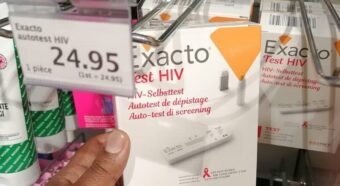Addressing Pandemics: The 45th Board of the Global Fund to Fight AIDS, Tuberculosis and Malaria takes a stand
- June 23, 2021
- HIV/AIDS
- By Armelle Nyobe
- Read in French

Key points of the Post-2022 Strategy
The Board meeting reaffirmed the importance of placing people and communities at the centre of the response to the three diseases as well as the importance of strong and sustainable systems in the fight against HIV, along with human rights, equity and gender issues.
Participants discussed positioning pandemic preparedness as an evolving goal. The strategy draft also highlighted 5 strategic shifts as follows: (i) maximizing integrated, people-centered health systems for impact, resilience, and sustainability; (ii) maximizing engagement and leadership of the most affected communities to leave no one behind; (iii) maximizing health equity, gender equality, and human rights; (iv) allocating more resources for health; and (v) contributing to pandemic preparedness and response.
Peter Sands noted some disruptions in the implementation of existing HIV, TB, and malaria programs due to the COVID-19 pandemic, but highlighted the resilience and innovations embraced to preserve the impact of programs. The Global Fund has created, among other things, the C19RM: a mechanism that has made it possible to invest, as of the date of the meeting, more than $1 billion in additional resources to fight COVID-19 and to preserve the gains made in the fight against AIDS, TB and malaria.
It was also underscored that the crisis caused by COVID-19 offers the institution an opportunity to “build back better” by establishing a new social contract, moving towards universal health coverage and expanding the scope of the social safety net through programs such as universal health benefits and social pension schemes. In practical terms, this requires ambitious but realistic plans. Thus, participants acknowledged that “Innovation and greater flexibilities are key to achieving ambitious outcomes.
Africa’s Position on the Strategy
The African constituencies’ positions were relatively aligned with those of other constituencies. In their statement, the constituencies underscored the need for the Global Fund to focus on the three existing epidemics, the importance of health systems, the reorientation of partnerships to fully include all stakeholders (including governments), and the need to focus on the performance of West and Central Africa countries and more generally on fragile countries.
The African constituencies stressed the importance of implementation by governments and the necessary complementarity between communities, civil society and governments.
According to the World Bank, it was also noted that the economic impact of the health crisis is leading Africa into its first recession ever in over 25 years. Indeed, the region is currently spending much more on health, especially on the COVID-19 response. Such circumstances require Africa to be innovative and flexible in the use of co-financing, especially in low- and middle-income countries.
Risk, co-financing and sexual abuse and harassment issues
In light of these developments and of the volatile risk landscape aggravated by the COVID-19 pandemic, at the Board meeting, the Secretariat discussed on risk appetite and indicated that flexibilities can be introduced without compromising the overall integrity of its engagement.
The Global Fund further seeks to maintain the priorities of domestic resource mobilization, sustainability, transition and co-financing, building resilient and sustainable systems for health, and addressing human rights, gender equality and equity, which require an even stronger partnership with governments as guarantors of better health for their people.
The meeting participants further reiterated their full support for a zero tolerance policy and zero tolerance for non-action on the issue of sexual exploitation, abuse and harassment.
The African Constituency Bureau for the Global Fund will continue to support and fully embrace its commitment to advocate for both regions. It will continue to stimulate and encourage various partners including governments, communities and other stakeholders to come together to reflect on the unique context and needs of the African continent, and on the different roles of each partner in improving the performance of grants allocated and related innovations.


